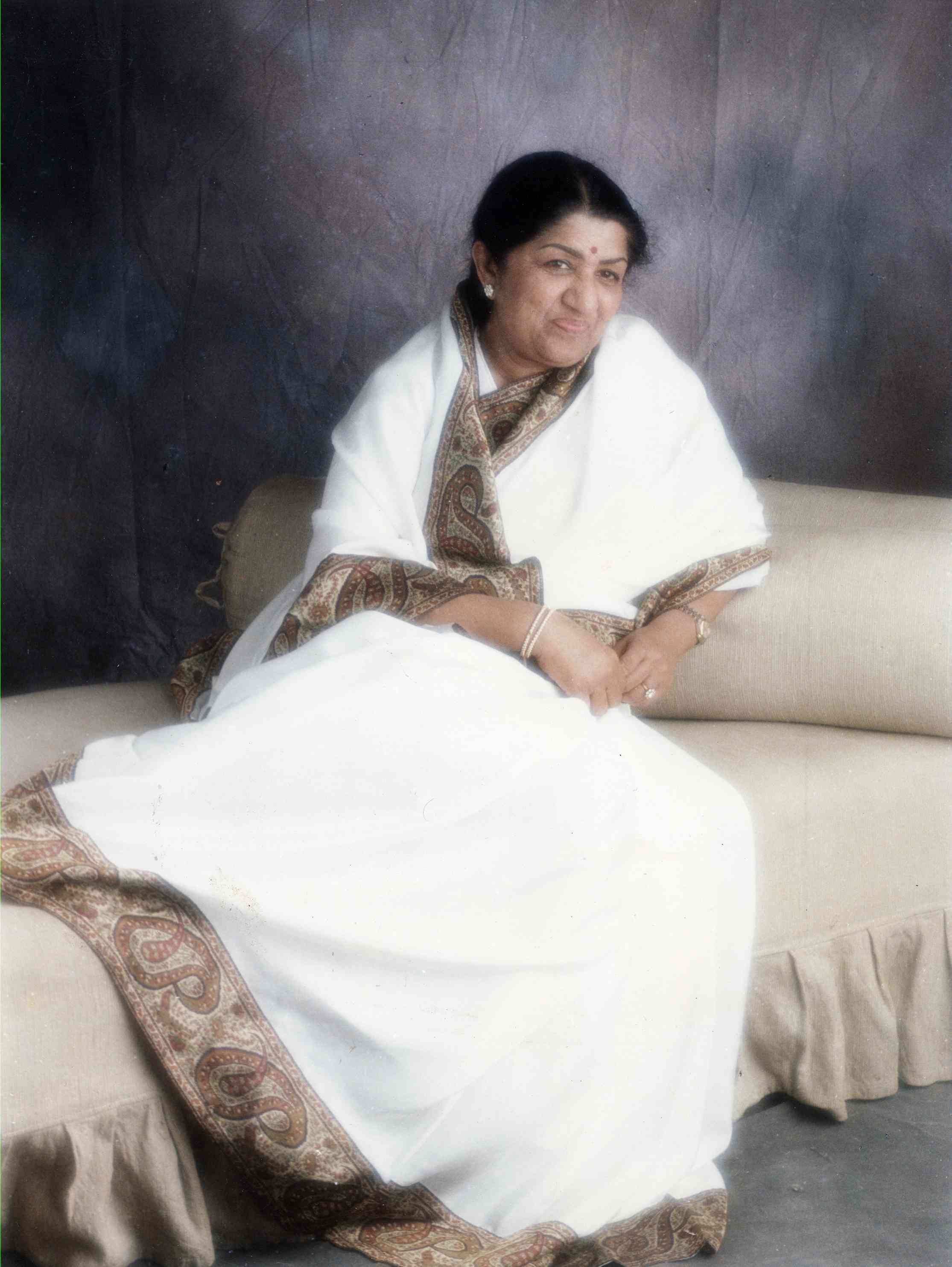

It was a pleasant July afternoon in 2006. My Europe tour-group had just reached the tallest mountain peak in Europe. Jungfraujoch, Switzerland. Our delightfully cranky Parsi tour guide then showed us inside an Indian restaurant with a clichéd name. ‘Bollywood’! Just as we were settling in our seats for lunch admiring the beauty of Alps from the window, faint notes of a song sung by a distinctly divine voice descended upon my ears. It was the same voice that has been enchanting me all throughout my life. It was Lata singing ‘O Beqaraar Dil Ho Chukaa Hai Mujhko Aansuon Se Pyaar’. Once again the mighty Mangeshkar’s melodic magic had made yet another special memory in my life even more special. It was as if she was there- right besides me!
For me, moments like these make Lata the legend that she is. For millions of Indians spread across the world, Lata Mangeshkar is not just another great artiste with a great voice. For them, she is much more than that. She is an omnipresent ethereal musical melody connecting them to their Indian roots. Hers is a voice that has been with them for eons- through thick and thin, through pain and pleasure, through dreams and reality. Official honors like Bharat Ratna and Dadasaheb Phalke Award are not enough to acknowledge and appreciate what this lady has accomplished in her amazing six decade-plus career.
I can still recall that moment vividly ‑ the moment I was hooked on Lata's voice. I must have been a pre‑schooler then. Aged five- at the most six, I was playing with a friend near my house. Suddenly an sweet voice wafted through the air caressing my mind ever so gently – “O O O Aajaa Piyaa Tohe Pyaar Doon/ Goree Bainyaa Tope Vaar Doon / Kis Liye Tu Itnaa Udaas / Soonkhe Soonkhe Honth, Ankhiyon Mein Pyaas, Kis Liye, Kis Liye!”
I was too young to understand the lyrics or the meaning of the song but old enough to notice that it was the voice that had made the song so special. My friend who was older to me by a year or so then made me wiser – “She is Lata Mangeshkar. She sings all the songs for the heroines in the films!"
The introduction was made. What I didn't know then was that over the years my mind would be captivated by the magical beauty of that voice again ‑ and again!
The school years passed without much ado about music. So did the junior college years. Hostel life in the medical college then introduced me to the joy of listening to old Hindi film music. I used to listen to the Urdu service of All India Radio late into the night (much to the chagrin of my studious room partner!). But all this 'hard work' paid rich dividends. From a casual listener, I was soon transformed into a 'knowledgeable' listener who could distinguish and accurately identify the singers and the composers.
In those nocturnal listening sessions, that voice which had captured my tender childhood imagination ‑ came back repeatedly to haunt me through innumerable, memorable songs. I knew then that this voice was going to be the guiding spirit of my foray into the wonderland of old Hindi film music. So holding the pallu of Lata's voice I began my musical journey into the past.
From Mumbai’s every nook and corner even remotely connected with film-music, I started collecting her songs. Hindi, Marathi, Bengali, Gujarati – the language was no bar. My collection-mania wasn’t just confined to acquiring Lata’s songs, though. Other golden era singers like Rafi, Kishore, Mukesh, Hemant, Talat, Manna Dey, Asha and Geeta too featured prominently there. But even after listening to everyone else, I was clear in my choice. For me, Lata was just too good! She was just in a different league!
When I seriously started exploring the realms of Hindi film music of the 1950s, 60s and early 70s- (years widely regarded as the golden era of this genre), the first thing that dawned upon me was Lata's unique place in history. From the heady early days of Anil Biswas, Naushad, Sajjad, C.Ramchandra, Shankar-Jaikishan, S.D.Burman, Roshan, Madan Mohan and Salil Choudhury to the final declining phase dominated by the likes of Laxmikant- Pyarelal, Kalyanji- Anandji and R. D.Burman, it was Lata who had played the most dominant part making this Golden Era golden. I realized another thing that while counting the most memorable and immortal songs from this golden era, more often than not it was Lata who had rendered them. This realization brought in even more respect and admiration in my mind for her talent.
I have always wondered about what it is that makes Lata unique. It is not a simple question to answer. Is it her exquisitely melodious voice? Is it her virtuosity? Is it her vocal association with almost all the major composers and cinematic milestones? Is it the way she popularised traditional Indian music through once‑tainted medium of film music? Or is it her phenomenal ability to make ordinary tunes appear extraordinary?
All these qualities have no doubt contributed to the making of the Lata- legend. But what really sets her apart is her ability to strike an emotional chord deep within. There is something intangible when you listen to her singing ‘Allah Tero Naam’, ‘Mere Man Ke Diye’ or ‘Kuchh Dil Ne Kaha’- something divine that lights up the dark corners of the minds burdened with the worldly stress! It is the popular music at its classiest best.
In a constantly changing world her timeless existence has been so reassuring. That is why she is so special. She always will be!
Author info is not available!